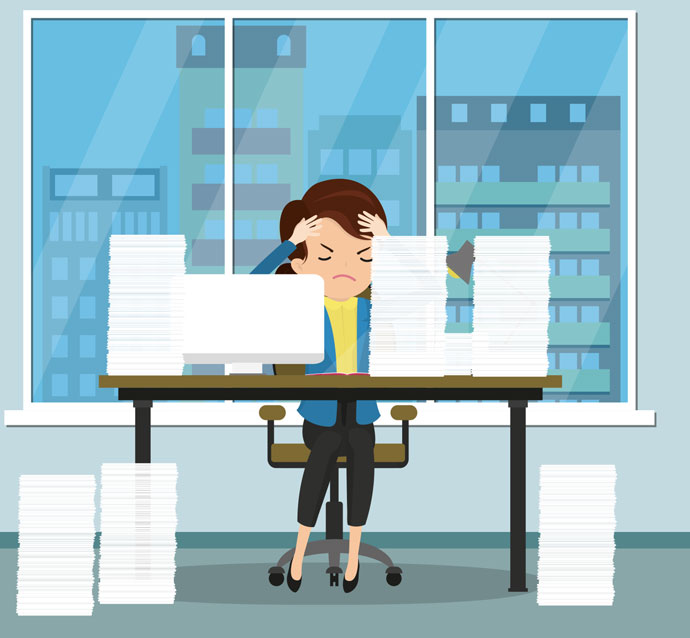
You have this great idea for an article. It’s going to be awesome! You just need to sit down and write it. So you sit down and… it turns out it’s not that simple. Where to start to start well?
You’d have to be really tough to be able to focus on your task when there’s plenty temptations around, and they’re only a click away from you. When you’re about to write something, make sure you’re cut off from all distractions: Facebook, messengers, phone, or even… a plate with your favorite pie brought by a near neighbor. If you concentrate best in silence, work in silence. And if it’s Prokofiew or Bob Marley that exhort you to action, telling you that “every little thing gonna be alright” – put earpieces on and get to work!
Outline, prospectus, framework – whatever the name. It can be very general, but it will let you stick to the frame and avoid unnecessary digressions or, in the worst case, losing the plot. A plan will be especially helpful with long, complex and difficult texts. In the case of more casual articles (like this one) a general outline will do the job, even in the form of freehand scrawling. A plan can give you much more than you might think – most importantly, it gives you the comfort of knowing you are not going to forget about anything when you let your creativity run wild.
Want to find out more about planning? Click here(“Is planning worth a while?”)

At one meeting, while we were discussing topics for our blog, our boss told us about her way for writing. It is so called free writing– a technique allowing to get into the rhythm of writing. Ula gets up early in the morning, when the rest of the family is still asleep, and she covers an empty sheet of paper with words. She keeps writing for about 10 minutes, going around a chosen subject, but also digressing from it. Free writing is all about uncontrolled, quick and direct writing, in which you don’t have to worry about word order, punctuation, or even logic (these elements will be important later on). You then read the whole thing and fish out anything that you can use for your article.
Note – free writing will only make sense if you write by hand! My first reaction was to get my laptop and open the text editor. Meanwhile, it is the effort of your hand and the discomfort of squeezing the pen that stimulate your gray matter and let you open the door to the deepest layers of your mind ☺
Free writing can be used as a warmup before proper writing, a way to regain inspiration, or as an imagination building exercise. It really works! Warming up like this regularly boosts creative thinking, expands your horizons, allows you to learn about your own capabilities, such as your range of words – not just business-related. You may also notice that you tend to use a given phrase too often, in which case you should learn to replace it with another one.
Other (hand!) methods for boosting creativity include crosswords, word games and sudoku. If you think this kind of entertainment belongs to elderly ladies waiting at a doctor’s office, let go of stereotypes and follow the example of the patients who clearly know how to train the mind. And they know how important it is!
The time of the day is important. Maybe you are more effective in the morning, or maybe at night. Or maybe you get inspired in the least expected moments. It is worth listening to the rhythm of your body. Hemingway (just like our boss) used to get up early with his mind wide open. But if you’re not the lark type of a man, you might choose to work at night, like Proust, for instance. Don’t exaggerate, of course, especially if you need to get up early. And if you’re thinking about something completely different and the inspiration simply won’t come, go for a walk, read something interesting, give yourself a moment.

Procrastination is one of the biggest enemies in any work, not only writing. If you never ever had to fight that enemy, please accept my sincere congratulations. Usually, it turns out that even if you had cut yourself off from Facebook, your phone, and the pie from your neighbor is long gone, there are still things you “need” to do. I haven’t called a friend for two weeks, she might think I feel offended, I should call. Oops, I was supposed to check if there are still tickets for “Nabucco” this season, if I don’t do it now they’ll be sold out! I just must clean up this drawer, it’s impossible! Oh, I still haven’t tried that tea I got for Christmas. What’s that noise coming from the bathroom? Ah, the laundry’s done…
If you know what I’m talking about, you probably also know that it’s enough to get started, and all the things you “must” do right now will get pushed to the background. So I recommend free writing, followed by setting yourself consecutive steps, at the end of which you will get a small award (a cup of tea maybe?). In difficult situations, I also use help from my personal motivator. My sister is perfect in that role. As a teacher, she is so good at motivating me to go through the next stage – even on the phone – that when she calls me after the appointed time and the stage is still not completed, I get so ashamed that I don’t want to get through this another time…
It is really the most difficult one. Then you catch the wind and there comes adrenaline and the flush on your face. So there’s no point postponing – the more often you fight your tiny weaknesses, the easier it becomes. And you can stop asking yourself that rhetorical question after completing every task: Why didn’t I do it earlier on?
Kategorie: school of contentic